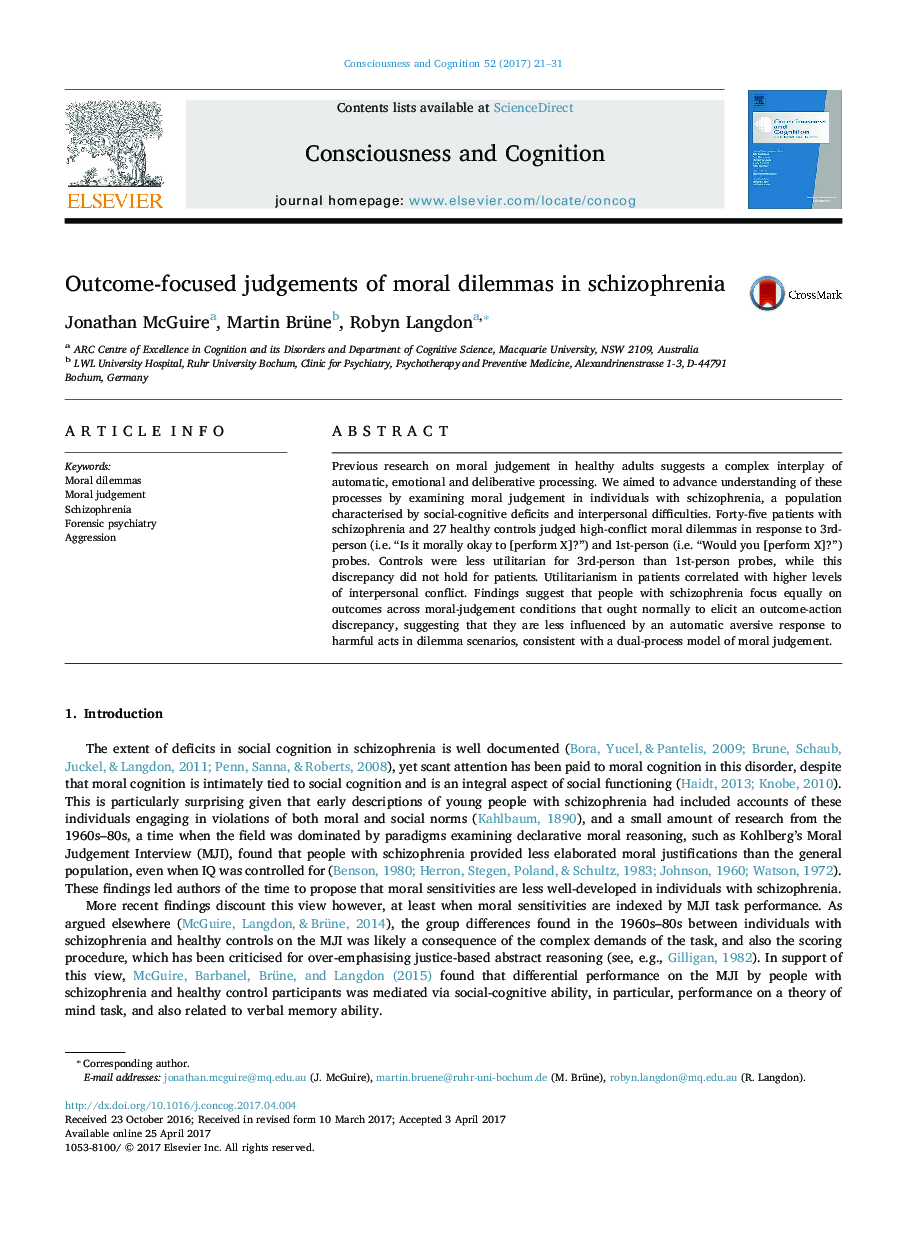| کد مقاله | کد نشریه | سال انتشار | مقاله انگلیسی | نسخه تمام متن |
|---|---|---|---|---|
| 5041763 | 1474159 | 2017 | 11 صفحه PDF | دانلود رایگان |
- We examined judgement of moral dilemmas in people with schizophrenia and controls.
- We used both 3rd-person moral judgement and 1st-person choice of action probes.
- Controls (not patients) were more utilitarian for 3rd-person than 1st-person probes.
- Patients were more utilitarian than controls for 3rd-person (not 1st-person) probes.
- Utilitarianism in patients associated with higher levels of interpersonal conflict.
Previous research on moral judgement in healthy adults suggests a complex interplay of automatic, emotional and deliberative processing. We aimed to advance understanding of these processes by examining moral judgement in individuals with schizophrenia, a population characterised by social-cognitive deficits and interpersonal difficulties. Forty-five patients with schizophrenia and 27 healthy controls judged high-conflict moral dilemmas in response to 3rd-person (i.e. “Is it morally okay to [perform X]?”) and 1st-person (i.e. “Would you [perform X]?”) probes. Controls were less utilitarian for 3rd-person than 1st-person probes, while this discrepancy did not hold for patients. Utilitarianism in patients correlated with higher levels of interpersonal conflict. Findings suggest that people with schizophrenia focus equally on outcomes across moral-judgement conditions that ought normally to elicit an outcome-action discrepancy, suggesting that they are less influenced by an automatic aversive response to harmful acts in dilemma scenarios, consistent with a dual-process model of moral judgement.
Journal: Consciousness and Cognition - Volume 52, July 2017, Pages 21-31
